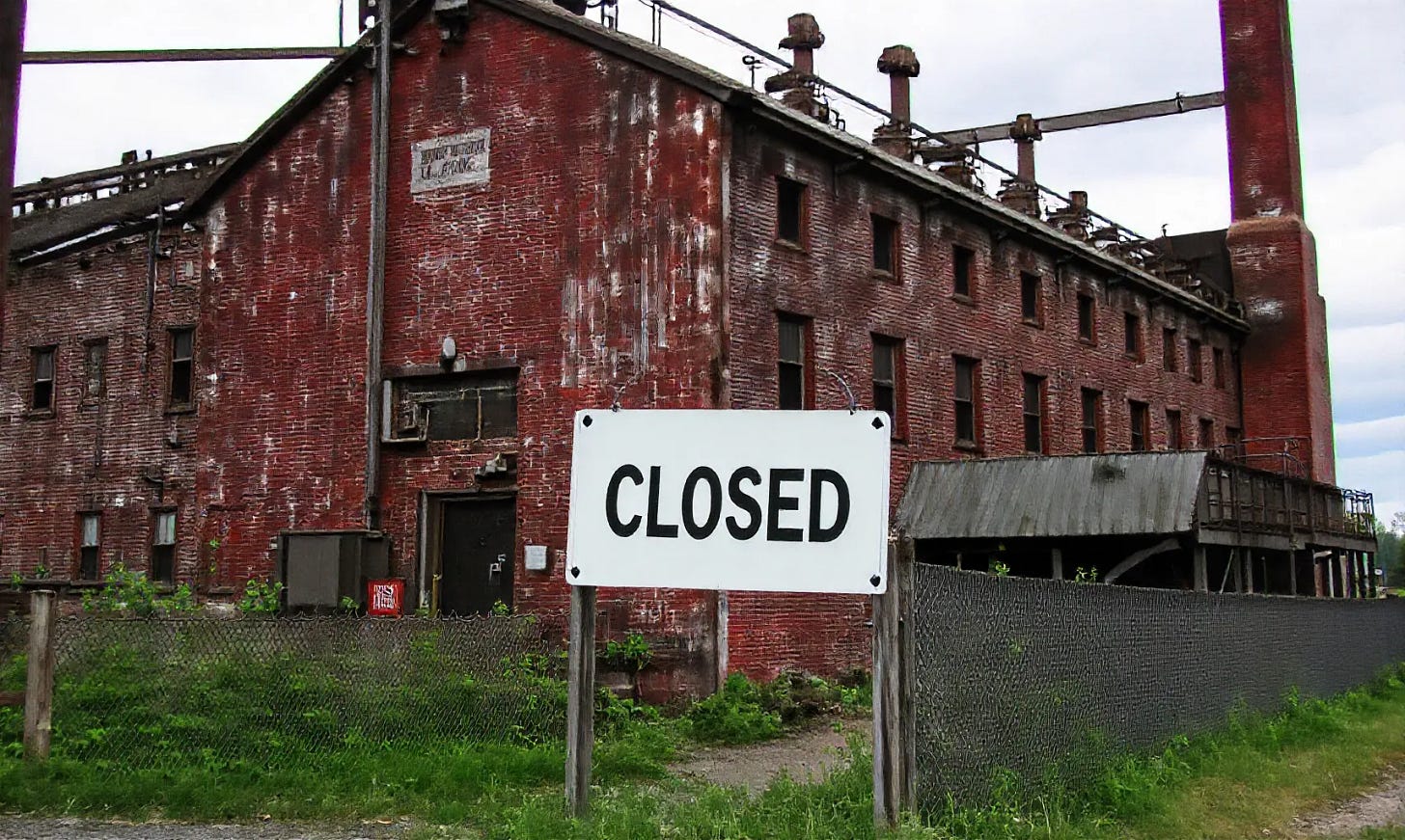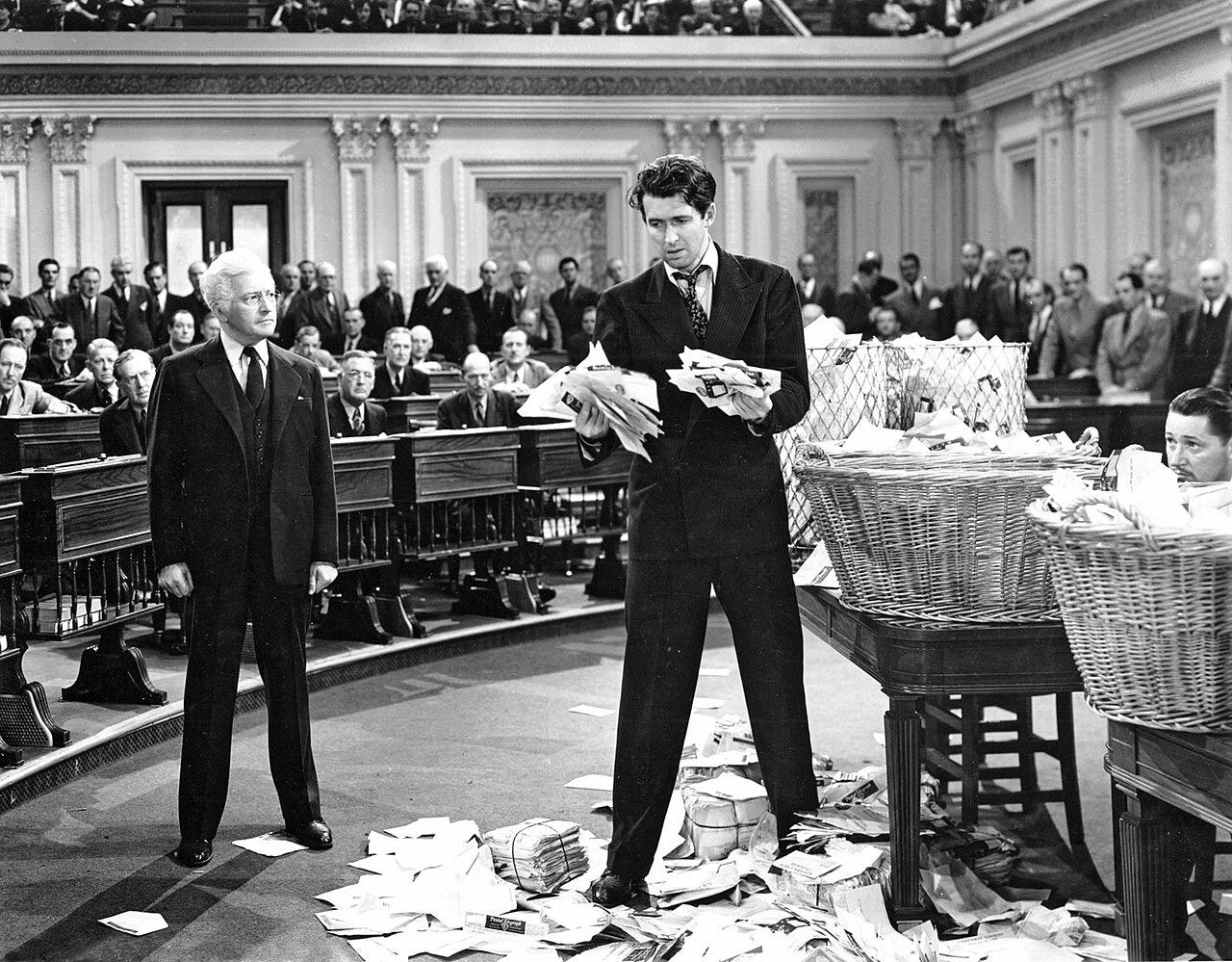Last summer, I went with some friends and my children to tour the shopping mall in my town, which was closing that day after fifty years of operation. Nearly all its stores had closed or had long ago moved out, the natural consequence of neglect, changing tastes, and an ever changing world beyond its doors. It was a funeral of sorts, but the happiest funeral I’d ever been to.
Families from all over the area arrived at the mall that day to reminisce, share memories, and send off an old friend. They pointed out where they had visited with Santa as children, first worked, and first loved; they posed for pictures in front of the fountain, they played on the escalators one last time.
I tried to keep my own sadness in check that day by remembering that our shopping mall had meant the death knell of downtown department stores for previous generations. I imagined that my parents and grandparents had paid a final farewell to the big store on main street, with its racks almost emptied, and shared their stories about Christmas, and young loves, and growing up, with their own families then.
These kinds of changes were inevitable, I reasoned; they should be met with an open heart, a longing glimpse towards the past, and the happy remembrance that each generation builds upon the foundation of its ancestors.
One of my favorite movies is Other People’s Money, a little seen comedy starring Danny Devito, Gregory Peck, and Penelope Ann Miller, from 1991. The film tells the story of a corporate raider who targets a struggling New England manufacturing company, New England Wire and Cable, to liquidate it fully and make more dollars from its parts than its whole.
Near the end of the film, Peck, who portrays the “stay the course” President of Devito’s takeover target, gives a rousing speech about why his company’s investors should stick with him and his values-driven approach. Devito’s character, Larry, follows, making the case for selling to him and forcing change.
“This company is dead,” Larry starts. “I didn't kill it. Don't blame me. It was dead when I got here. It's too late for prayers.” He goes on, “Let's have the intelligence, let's have the decency to sign the death certificate, collect the insurance, and invest in something with a future.”
The shareholders vote for Larry and his liquidation plan, which is only avoided when Miller, who plays the lawyer for Peck’s company, secures a contract for new business from a Japanese air bag manufacturer, then seen as a more productive investment than outright liquidation. Too bad my mall couldn’t make airbags.
America is a little like our old shopping mall or New England Wire and Cable these days. It’s still big and imposing, and it has a rich legacy we all cherish in our hearts. But, the world has been changing a little bit at a time for a long time, and many Americans think it’s time we sell off what we’ve built for parts or knock them down and build something new.
The owners of my mall and Larry, and our current caste of political leaders, are not wrong about the cold economics of the situation. A Romantic who goes bankrupt and dies in the street isn’t much of a Romantic. Time waits for no man. You need to have the decency to kill off an albatross around your neck, no matter how much you love it.
Many of these same folks get something terribly wrong, though. While its important – imperative, even – that we know when to make difficult choices, its just as important that we bring the same vigor in holding true to our highest ideals. For me, those include the common decencies enshrined in our Constitution – the funny notions that each person is worthy of honor and respect, should be taken seriously, and allowed to pursue life, liberty, and happiness, to the greater degree possible.
This means you let families tour and celebrate the mall before you close it. It means you stand up before shareholders and remind them that their decisions will have real consequences for real people and real communities. It means you have the honesty and integrity to do what’s right and to find a better way, even when it’s your opposition proposing it.
I woke up the other morning to the math of laying off 1,000 government workers, which I’ve now heard in my news for three consecutive days. How long does it take to lay off someone you love and care for? Thirty minutes? An hour? How long does it take to call them into your office, break the news, console them, and talk to them about how they will tell their spouse and children, and what they will do about their mortgage and credit card bills and that vacation they were looking forward to? I figured, if you laid off people this way, continuously, eschewing all other responsibilities, and worked with the utmost efficiency in your humanism, it would take the better part of the year to fill out just the last three days’ worth of pink slips. This leaves me wondering how Uncle Sam did it all since Wednesday.
In moments when I lose my composure lately, I’ve been feeling angry. Not angry at folks making decisions without an adequate dollop of carefulness, but at those who would empower or cheer them on. It’s the kind of anger Mr. Smith had when he went to Washington in 1939. I want to grab my fellow countrymen and shake them violently and yell at them loudly:
“Just get up off the ground, that's all I ask. Get up there with that lady that's up on top of this Capitol dome, that lady that stands for liberty. Take a look at this country through her eyes if you really want to see something. And you won't just see scenery; you'll see the whole parade of what Man's carved out for himself, after centuries of fighting. Fighting for something better than just jungle law, fighting so's he can stand on his own two feet, free and decent, like he was created, no matter what his race, color, or creed. That's what you'd see. There's no place out there for graft, or greed, or lies, or compromise with human liberties.”
Mr. Smith also said something resonant all those years ago about the practice of overreaching Executive Orders:
“I wouldn't give you two cents for all your fancy rules if, behind them, they didn't have a little bit of plain, ordinary, everyday kindness and a -- a little lookin' out for the other fella, too.”
There’s been a piece of a quote in my mind all week; to paraphrase, it’s something like: The character of a person or a place is composed, essentially, of the things that keep happening there. My shopping mall, on the whole, had a great character. New England Wire and Cable did, too. The country I grew up in, indubitably. I hope that today, in America – everywhere, really - we all act in ways that reflect the kind of there we want to have keep happening.
Always Getting Better is a periodic newsletter about connecting your values and behaviors. It is written by Kate Cherry, a mom from Michigan, with a penchant for overthinking and a lifelong enjoyment of the written word.



